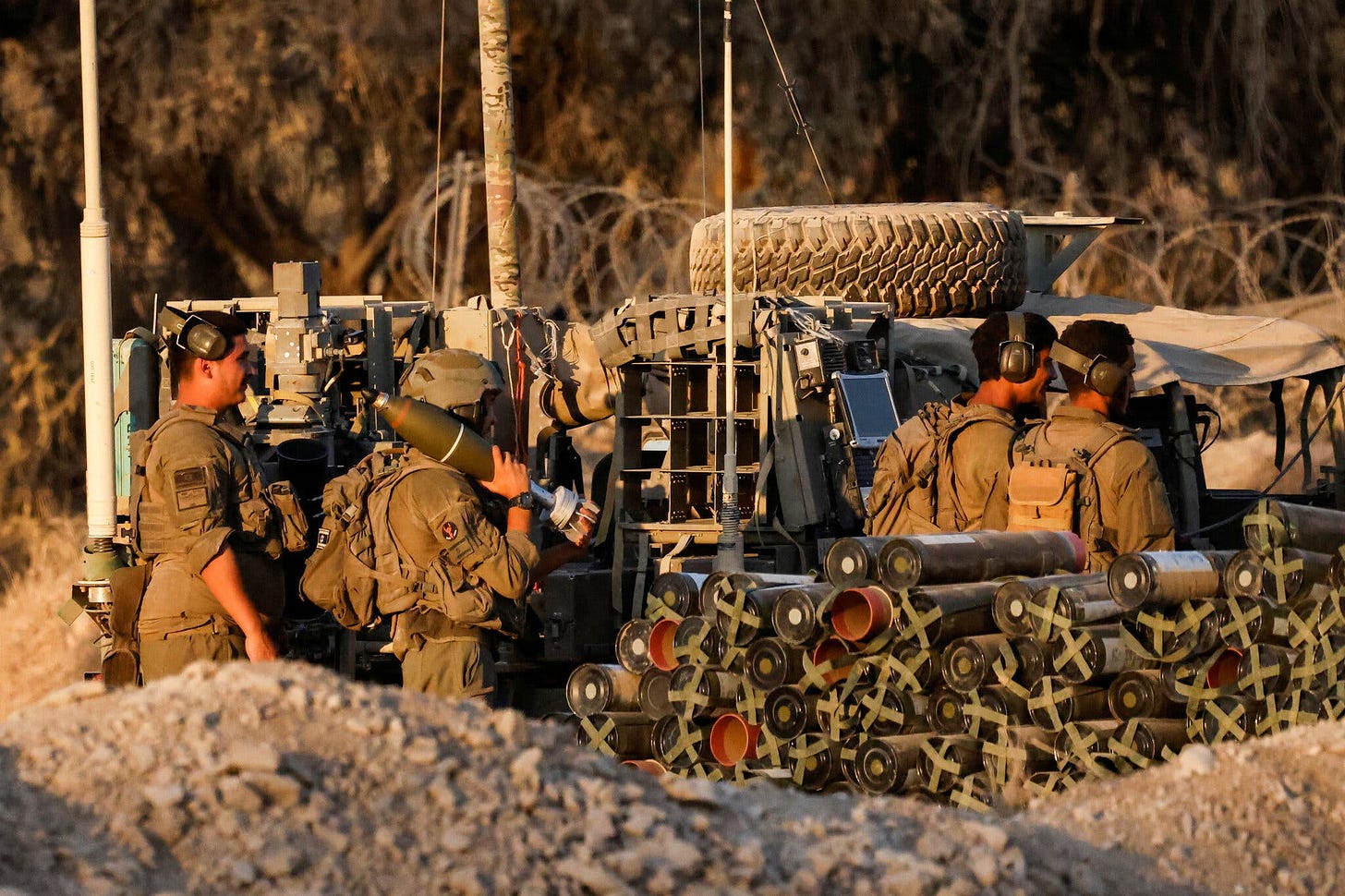
Despite much grandstanding in the Biden administration about halting specific arms shipments to Israel over feigned concerns about how they might be used (inflicting death is the expected form), US military supplies have been restored with barely a murmur. In a report in Haaretz on 29 August, a rush of weapons to Israel has been noticed since the end of July.
August proved to be the second busiest month for US arms deliveries to Israel’s Nevatim Airbase since the October 2023 attacks by Hamas. This has taken place alongside an increased concentration of US forces in the region since Israel’s assassinations of Hezbollah commander Fuad Shukr and Hamas political chief Ismail Haniyeh at the end of last month. Two aircraft carriers, a guided missile submarine, and deployments of advanced F-22 stealth aircraft in Qatar, have featured in a show intended to deter Tehran from any retaliatory strikes.
After examining open-source aviation data from the end of July, Haaretz concluded that the issue of delayed shipments of US weapons had “been solved.” Dozens of flights by US military transport planes, along with civilian and military Israeli cargo planes, mostly from Qatar and the Dover Air Force Base in Delaware, had been noted. Demands by Israeli Prime Minister Benjamin Netanyahu in his 24 July speech to Congress that US military aid be “dramatically” expedited to “end the war in Gaza and help prevent a broader war in the Middle East”, had been heeded.
On 26 August, Israel received its 500th aerial shipment of weapons and military supplies from the United States since the latest war’s commencement. The 500 flights have also been supplemented by 107 sea shipments, altogether facilitating the transfer of 50,000 tons of military equipment in an initiative between the US military, Israel’s Defence Ministry’s Directorate of Production and Procurement and Mission to the United States, the IDF’s planning Directorate and the Israeli Air Force.
During the same month, the Democratic National Convention, which saw no debate about the candidature of Kamala Harris as its choice for presidential candidate, had tepidly promised some agitation on continued arms to Israel. Ahead of the event, the Uncommitted movement’s 30 delegates, picked by voters alarmed by US support for Israel’s war machine in Gaza, were hoping to convince the 4,000 pledged delegates Harris had captured to add an arms embargo to its campaign in order to induce a ceasefire.
A petition by the group sought two outcomes: the adding of language to both the party and campaign platform “that unequivocally supports a permanent ceasefire in Gaza and a cessation of supplying weapons for Israel’s assault and occupation against Palestinians.”
These wishes proved much too salty for the apparatchiks and party managers. The Democratic Party’s 2024 national platform ironically enough begins with an effusive “land acknowledgment” to “the ancestors and descendants of Tribal Nations” but plays it safe regarding an ally very much the product of territorial seizure, violence and occupation. Despite mutterings in the party room about a split between moderate and progressive members on Israel’s conduct of the war, the topic of a ceasefire never made it to the committee hearings when the document was drafted.
In firmly insisting on continued US support for Israel in its war against Hamas, much is made in the platform about US efforts to forge a way that will see a release of the hostages, “a durable ceasefire”, the easing of “humanitarian suffering in Gaza” and the “possible normalisation between Israel and key Arab states, together with meaningful progress and a political horizon for the Palestinian people.” The language is instructive: the Palestinians are objects of pitiful charity, at the mercy of Israel, the US, and various Arab states. Like toddlers, they are to be managed, steered, guided, their political choices forever mediated through the wishes of other powers.
With Israel remaining Washington’s paramount ally in the Middle East, that process of steering and managing the unruly Palestinians has been, thus far, lethal. During her first interview given after the convention (she has an aversion to them), Harris scotched any suggestions on going wobbly on Israel. “I’m unequivocal and unwavering in my commitment to Israel’s defence and its ability to defend itself, and that’s not going to change,” she told CNN’s Dana Bush. In what has become a standard refrain, Harris lamented that “far too many innocent Palestinians have been killed” while acknowledging Israel’s right to self-defence.
When asked whether she would alter President Biden’s policy on furnishing military assistance to Israel, “No” came the reply. “We have to get a deal done. The war must end, and we must get a deal that is about getting the hostages out. I’ve met with the families of the American hostages. Let’s get the hostages out. Let’s get the ceasefire done.”
This middle-management lingo says much about Harris’s worldview; in wishing to “get the ceasefire done”, she is encouraging a range of factors that will make sure nothing of the sort will be achieved. The Netanyahu formula has worked its usual black magic. Hence, the lack of an arms embargo, and the continued, generous supply to the IDF from their largest military benefactor.



